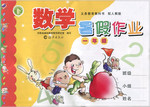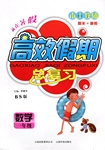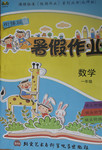
How to Be Polite at a Dinner Party?
It’s not polite to arrive at a dinner more than 15 to 20 minutes late. The host or hostess usually waits for all the 21 to arrive before serving the meal. If someone is late,the food may be spoiled(变味),and 22 may the host or hostess’ spirits.If you have to be 23 , call and tell them to start 24 you.
It’s even worse to be early! The host or hostess will probably not be 25 .If you are early,drive or walk around the block a few times,or just sit in your car until the right time.
 Though it’s often 26 to arrive at a party on
time,on the other hand,the host or hostess 27 guests to
arrive and leave between certain times,so you can
28 at any time between the times he or she gives you.
Though it’s often 26 to arrive at a party on
time,on the other hand,the host or hostess 27 guests to
arrive and leave between certain times,so you can
28 at any time between the times he or she gives you.
It’s nice to bring an empty stomach,but it’s even nicer to bring 29 present.The present should not cost a lot,or you might make the host or hostess 30 .Flowers,wine,or a box of candy will be fine. 31 bring money as a present.In an introduction,the 32 of a name is:(1)the given name;(2)the family name.In other 33 ,the given name comes 34 . It’s important not only to learn and remember 35 ,but to repeat them often in conversation.After the introduction,we usually call friends by their 36 names.Older people may want you to call them by their titles and family names,such as “Mrs. Smith”,“Mr. Johnosn”,“Dr .Brown”.
A maiden(闺女)name is a 37 family name at birth. In the United States and Canada,after a woman 38 ,she takes the family name of her 39 in place of her maiden name.It is now becoming common,however,for women to 40 their maiden names after they get married,
1..A.guests B. visitors C. customs D. passengers
2..A.or B. so C. but D. yet
3..A.tired B. hungry C. 1ate D. early
4..A.without B. for C. with D. after
5..A.awake B. ready C. up D. friendly
6..A.useless B. impossible C. unable D. important
7..A.forces B. invites C. begs D. orders
8..A.play B. fly C. arrive D. start
9..A.a big B. a small C. a good D. an expensive
10..A.pleased B. satisfied C. interested D. uneasy
11..A.Never B. Always C. Do D. Be sure to
12..A.spelling B. calling C. order D. pronunciation
13..A.words B. 1etters C. idioms D. sentences
14..A.1ast B. first C. finally D. in the middle
15..A.expressions B. appearances C. names D. addresses
16..A.given B. family C. middle D. pen
17..A.gentleman’s B. boy’s C. woman’s D. man’s
18..A.works B. marries C. bears D. dies
19..A.husband B. mother C. father D. sister
20..A. stop B. give up C. keep D. find
 暑假作业海燕出版社系列答案
暑假作业海燕出版社系列答案 本土教辅赢在暑假高效假期总复习云南科技出版社系列答案
本土教辅赢在暑假高效假期总复习云南科技出版社系列答案 暑假作业北京艺术与科学电子出版社系列答案
暑假作业北京艺术与科学电子出版社系列答案科目:高中英语 来源:2014届江苏省无锡市高三期初质量检测英语试卷(解析版) 题型:阅读理解
It can’t be true that when in Rome do as the Romans do. So here’s some necessary information for you on what you can talk with the local people in France, Australia and Switzerland, and different customs of these countries.
In France
You’ll find that conversations often turn into heated debates. Give opinions on subjects that you are knowledgeable about. There is rarely a moment of silence, except when the topic under discussion has been exhausting, and nothing new has been introduced.
Food, art ,music and current events or history are welcome topics. The French believe in freedom. You can criticize anyone, but not Napoleon, who is a symbol of French spirit, and never use the standard U.S. opening remark “ What do you do?”
In Australia
Australians tend to be enthusiastic debaters. A wide range of topics may be open to discussion, including religion and politics. The best policy, however, is to wait for Australian companions to bring up subjects: be prepared to hear their arguments.
Sport is a common topic of conversation in Australian and Australians tend to use sporting comparison. Australian like to criticize themselves, but they can’t stand criticism from others.
Don’t talk big. Australians prefer to judge your competence and abilities through your actions. People who show off their education in conversation may be subject to tease.
In Switzerland
The Swiss may seem cold. Once you get close to them, however , you’ll find that they are honest and responsible people, who will be loyal to your interests.
They are good listeners and will remember practically everything you say to them. Sometimes they will even go so far as to take notes while you speak. The Swiss are very private people, so you should avoid asking personal questions. They can be rather serious, so it is advisable to avoid making jokes on them.
1.According to the passage, when talking you are advised_______.
A. to discuss the heated issue with the French
B. not to use sporting comparison with Australians
C. to have the Australians start a subject
D. not to ask people of the three countries personal questions
2.We can learn from the passage that___________.
A. Australians may not show off their education before others
B. Australians like to criticize other people
C. you can express your ideas for everything you know little about to the French
D. you can criticize anyone in France because you have freedom
3.What is the theme of the passage?
A. How to adapt to the life abroad.
B. What to argue about with foreigners.
C. How to find better topics.
D. What to talk about with foreigners.
4.Following the passage, the author would most probably tell us_____
A. effective communication with foreigners
B. customs of the three countries
C. his or her own experiences
D. how to be a good listener
查看答案和解析>>
科目:高中英语 来源:2012-2013学年广东省揭阳市高三第二次模拟英语试卷(解析版) 题型:阅读理解
The day when the jobs were handed out was one of the most exciting moments for all the children in the class. It took place during the first week of the term. Every kid was given a job for which they would be responsible for the rest of that school year.
Some jobs were more interesting than others, and the children were eager to be given one of the best ones. When giving them out, the teacher took into account which pupils had been most responsible during the previous year. During the previous year Rita had carried out the teacher’s instructions perfectly. All the children knew Rita would be given the best job.
But there was a big surprise. Each child received a normal job. But Rita’s job was very different. She was given a little box containing some sand and one ant. Though the teacher insisted that this ant was very special, Rita felt disappointed. Most of her classmates felt sorry for her. Even her father became very angry with the teacher and he encouraged Rita to pay no attention to this insignificant pet. However, Rita preferred to show the teacher her error by doing something special with that job of little interest.
Rita started investigating all about her little ant and gave the ant the best food, and it grew quite a bit bigger.
One day, a man, who looked very important, came into their classroom and declared, “Your class has been chosen to accompany me, this summer, on a journey to the tropical rain forest, where we will investigate all kinds of insects. Among all the schools of this region, your class has best cared for the little ant.”
That day the school was filled with joy and celebration. Everyone thanked Rita for having been so patient and responsible. And many children learnt that to be given the most important task you have to know how to be responsible even in what are the smallest tasks.
1.What did the teacher base his decision on when giving out jobs to the children?
A.Their characters and interests.
B.Their class performance during the previous year.
C.Their working performance during the previous year.
D.Their ability of managing their accounts during the previous year.
2.What does the underlined sentence mean?
A.Each child got an important job.
B.Each child got an interesting job.
C.The perfect student got the job of everyone’s preference.
D.The most responsible student got the job of least interest.
3.What is Rita’s attitude to her father’s suggestion?
A.Negative. B.Uncertain. C.Totally positive. D.Acceptive.
4.We can infer that the man who made the declaration is a _________.
A.hunter B.director C.biologist D.principal
5.What would be the best title for the passage?
A.Never complain about life.
B.Small tasks can lead to fortunes.
C.Men are best known by their friends.
D.Responsibility and intelligence bring good luck.
查看答案和解析>>
科目:高中英语 来源:2010-2011学年浙江省高一上学期10月月考英语卷 题型:阅读理解
Career education is instruction intended to help young people identify, choose, and prepare for a career. Such instruction may focus on a person's role in work, leisure, or family life. Career education differs from vocational education, which is designed to teach specific occupational skills.
Career education includes the formal and informal learning that occurs in the family, in the community, and in schools. In schools, career education consists of instructive activities included in many courses. These activities are designed to improve the attitudes, knowledge, and skills important for work roles. Career education helps students develop self- understanding and use it to plan their education and working life.
A complete career education program in school begins in kindergarten and continues at least through high school. Many colleges and universities also offer career education through their counseling (???) programs. In kindergartens and elementary schools, youngsters learn about different types of work. In middle schools or junior high school, children begin to explore the occupations and leisure activities that interest them most. In high school, students get more specific information about occupations and life styles. They may be in classroom, small group, or individual sessions where they learn how to make career decisions. They also should obtain the skills they need for further study or for a job after graduation. Counselors provide information on such matters as how to locate and apply for jobs and how to be successful in interviews. Teachers and counselors use a variety of methods to provide career education, including films about occupations or industries. Children may invite parents or other adults to come to school and describe their jobs. A student may accompany a worker on the job. Cooperative education combines classroom study with practical work experience.
1. According to the passage, which statement is true? ( )
A. Career education is carried out in primary schools only.
B. Career education is carried out in middle schools only.
C. Career education is carried out in colleges only.
D. Career education is carried out in the whole process of people's education - from kindergarten to university.
2. It may be inferred from the passage that ( ).
A. not only teachers but also parents are responsible for youngsters' career education
B. in high schools, students know more specific information about occupations
C. career education may be in classroom, small group, or individual sessions
D. teachers use a variety of methods to provide career education, including films
3.A child may get career education in all the following places EXCEPT ( ).
A. schools B. homes C. communities D. public places
4.The underlined word "combine" in the last paragraph means "to ( )".
A. connect B. force C. provide D. attempt
查看答案和解析>>
科目:高中英语 来源:2010-2011学年宁夏高三第一次模拟英语卷 题型:阅读理解
Parents are a child’s first teachers. But some parents never learned from good examples. In New York City, a nonprofit agency called Covenant House tries to help homeless young mothers become good parents.
The twelve or so teenagers who live at the shelter attend parenting classes four days a week. The class is called Mommy and Me. Teacher Delores Clemens is a mother of five and a grandmother. She teaches basic skills, like how to give a baby a bath and how to dress a baby depending on the season.
She remembers one student who learned from her mother not to pick up a crying baby. The mother said that would only make the child needy and overly demanding. Delores Clemens says, “that's not true. You have to hold your baby! He is crying for a reason. If you never pick him up, he's going to keep crying. Pick your baby up. Cuddle your baby. Hug him! And she started to do that. They just want a little cuddling and a little love. And it works!”
Delores Clemens says her students also learn how to be good mothers by letting themselves be mothered. Around three hundred fifty teenage mothers graduate from Covenant House's Mommy and Me class every year.
In class, with her baby son is Natasha. She lived on the streets. She is glad not only for the warmth and shelter of Covenant House. As she told reporter Adam Phillips, she is also glad for the help they offer in seeking a more secure life.
The World Health Organization says the United States has forty-one births for every one thousand girls age fifteen to nineteen. That is higher than other developed countries, as well as some developing ones. By comparison, northern neighbor Canada has fourteen births and southern neighbor Mexico has eighty-two.
1.What is the text mainly about?
|
A.Parents who are a child’s first teachers. |
|
B.A class where teens learn mothering and are mothered. |
|
C.A nonprofit agency that offers a more secure life. |
|
D.A kind teacher who help homeless young mothers. |
2.Covenant Houses’ Mommy and Me class is intended to _____.
|
A.help homeless young mothers become good parents |
|
B.provide homeless young mothers with a warm shelter |
|
C.help mothers in New York be good parents |
|
D.teach some parents how to love their children |
3.What can we know about Delores Clemens from the text?
|
A.She has a mother of five and a grandmother. |
|
B.She thinks a crying baby should be picked up and hugged. |
|
C.She teaches advanced skills on how to be good mothers. |
|
D.She is very glad for the warmth and shelter of Covenant House. |
4. According to the World Health Organization, which country has the highest births for girls age fifteen to nineteen?
|
A.Canada |
B.the United States of America |
C.Mexico |
D.Britain |
查看答案和解析>>
科目:高中英语 来源:2013届甘肃省高二英语期末考试试题 题型:阅读理解
Too many people want to be their friends, but they don’t give friendship back. That is why some friendship doesn’t last long. To have a friend, you must learn to be one. You must learn to treat your friend the way you want your friend to treat you. Learning to be a good friend means learning three rules: be honest; be generous; be understanding.
Honesty is where a good friendship starts. Friends must be able to trust one another. If you do not tell the truth, people usually find out. If a friend finds out that you haven’t been honest, you may lose friend’s trust. Good friends always count on one another to speak and act honestly.
Generosity means sharing and sharing makes a friendship grow. You do not have to give your lunch money or your clothes. Naturally you will want to share your ideas and feeling. These can be very valuable to a friend. They tell your friend what is important to you. By sharing them, you help your friend know better.
Sooner or later everyone needs understanding and helping with a problem. Something may go wrong at school. Talking about the problem can make it easier to solve. Turning to a friend can be a first step in solving the problem. So to be a friend you must listen and understand. You must try to put yourself in your friend’s place so you can understand the problem better.
No two friendships are ever exactly alike. But all true friendships have three things in common. If you plan to keep your friends, you must practice honesty, generosity, and understanding.
1.Some friendships don’t last very long because ________.
|
A.there are too many people who want to make friends. |
|
B.some people receive friendship but don’t give friendship back. |
|
C.those who give others friendship receive friendship from others. |
|
D.they don’t know friendship is something serious. |
2.According to the passage honesty is ___________.
|
A.something countable |
B.the base of friendship |
|
C.as important as money |
D.more important than anything else |
3.Which of the following isn’t mentioned(提及) in the passage?
|
A.Always tell your friends the truth. |
|
B.Sharing your mind with your friends is of great value. |
|
C.Discussing your problems with your friend often helps to solve the problem. |
|
D.A friend who gives you his lunch money is a true friend. |
4.The best title of this passage is __________.
|
A.Honesty is the Best Policy |
B.A Friend in Need is a Friend Indeed |
|
C.How to be Friend |
D.Three Important Points in Life |
查看答案和解析>>
湖北省互联网违法和不良信息举报平台 | 网上有害信息举报专区 | 电信诈骗举报专区 | 涉历史虚无主义有害信息举报专区 | 涉企侵权举报专区
违法和不良信息举报电话:027-86699610 举报邮箱:58377363@163.com